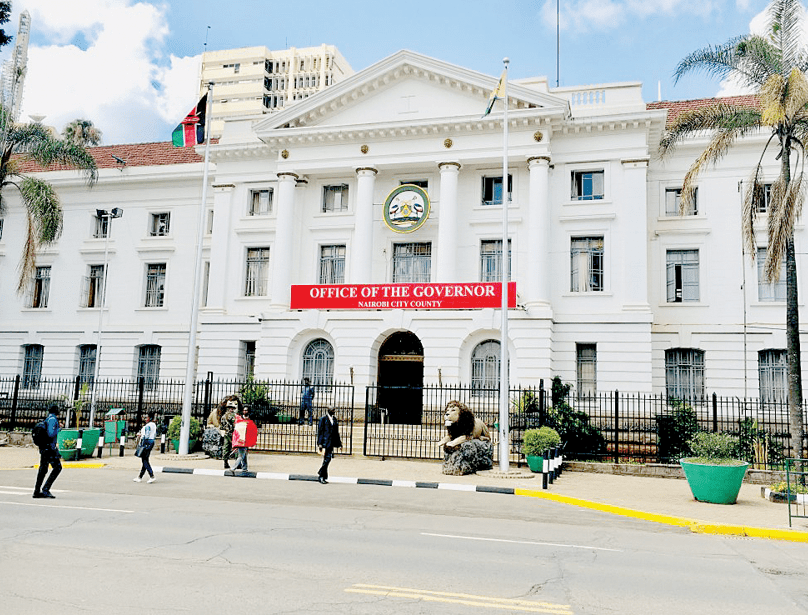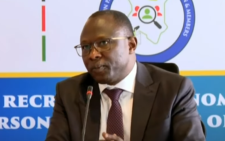Quest for CAS job driven by self-preservation instinct

Prof Kivutha Kibwana is a solid and revered public intellectual with a strong imprint in reform discourse. He belongs to the coveted breed of artists who left the academy to pursue the courses they had been theorising.
He contributed substantially towards the 2010 Constitution. As the spokesman of the National Convention Executive Council (NCEC) in the 1990s, the law scholar teamed up with progressive civil society voices and youthful opposition politicians to force a reluctant Kanu dictatorship to enter national dialogue on constitutional reforms.
The NCEC was agitating for an overhaul of the Constitution but its cause and stamina were irredeemably weakened when then President Moi poached Kibwana’s opposition comrades into the infamous Inter-Parties Parliamentary Group talks that yielded piece-meal law reforms.
Despite Kibwana’s warning about Moi’s motives, the young politicians succumbed largely due to the urge for self-preservation. Moi was giving incentives and the 1997 elections were around the corner.
After the Kanu defeat in 2002, Kibwana served as assistant minister, Cabinet minister, an advisor to the presidency and governor of Makueni for two terms. Call it a stellar career.
Politicians in Kenya have proved either incapable or unwilling to leave the stage when the scales are high. It was, therefore, heartwarming when the 69-year-old announced that he had retired from politics with a ridder that he will be available for advisory assignments. It was highly anticipated that he would retreat to the academy to share his experiences, improve research, teach and write his memoirs.
Not at all.
He is among individuals who have expressed interest in the leadership of the Ethics and Anti-Corruption Commission (EACC). But what will be the motivation of steering an institution that has left some of its past leaders irredeemably tainted?
Wait until you peruse the list of political rejects and retired public servants dusting up their boots for appointment as Chief Administrative Secretary.
First things first. The post of CAS is a back-door return of the position of assistant minister with the tacit help of an increasingly nervous and cooperative Judiciary.
It is an irritating appendage to the ministry whose mandate is largely undefined and shadowy but remains a valuable enabler to the culture of political tokenism.
The structure of government entrusts the running of ministry to the Cabinet Secretary as the policy driver and the Principal Secretary as the head of bureaucracy and accounting officer.
This renders the CAS a peripheral but highly paid busybody with State protection and a leech on the taxpayers who is only accountable to only the appointing authority.
But why will so many fairly accomplished politicians be attracted to serve as deputies to rookie and out-of-depth Cabinet Secretaries?
It is all about self-preservation that comes with access to State power.
Kibwana has a commendable track record as governor, who through public participation gave the peasants of Wote the power to guide their development. One would think he hopes to deploy his vast constitutional knowledge and governance skills to redeem EACC.
But the same cannot be said of some of the politicians eyeing various public sector appointments and who are ready to sacrifice their big titles for “small jobs”.
A number of them are battling court cases which pose a danger to their questionable wealth. It has been demonstrated that such cases tend to disappear with increased proximity to State power. Prof Kivutha Kibwana is a solid and revered public intellectual with a strong imprint in reform discourse. He belongs to the coveted breed of artists who left the academy to pursue the courses they had been theorising.
He contributed substantially towards the 2010 Constitution. As the spokesman of the National Convention Executive Council (NCEC) in the 1990s, the law scholar teamed up with progressive civil society voices and youthful opposition politicians to force a reluctant Kanu dictatorship to enter national dialogue on constitutional reforms.
The NCEC was agitating for an overhaul of the Constitution but its cause and stamina were irredeemably weakened when then President Moi poached Kibwana’s opposition comrades into the infamous Inter-Parties Parliamentary Group talks that yielded piece-meal law reforms.
Despite Kibwana’s warning about Moi’s motives, the young politicians succumbed largely due to the urge for self-preservation. Moi was giving incentives and the 1997 elections were around the corner.
After the Kanu defeat in 2002, Kibwana served as assistant minister, Cabinet minister, an advisor to the presidency and governor of Makueni for two terms. Call it a stellar career.
Politicians in Kenya have proved either incapable or unwilling to leave the stage when the scales are high. It was, therefore, heartwarming when the 69-year-old announced that he had retired from politics with a ridder that he will be available for advisory assignments. It was highly anticipated that he would retreat to the academy to share his experiences, improve research, teach and write his memoirs.
Not at all.
He is among individuals who have expressed interest in the leadership of the Ethics and Anti-Corruption Commission (EACC). But what will be the motivation of steering an institution that has left some of its past leaders irredeemably tainted?
Wait until you peruse the list of political rejects and retired public servants dusting up their boots for appointment as Chief Administrative Secretary.
First things first. The post of CAS is a back-door return of the position of assistant minister with the tacit help of an increasingly nervous and cooperative Judiciary.
It is an irritating appendage to the ministry whose mandate is largely undefined and shadowy but remains a valuable enabler to the culture of political tokenism.
The structure of government entrusts the running of ministry to the Cabinet Secretary as the policy driver and the Principal Secretary as the head of bureaucracy and accounting officer.
This renders the CAS a peripheral but highly paid busybody with State protection and a leech on the taxpayers who is only accountable to only the appointing authority.
But why will so many fairly accomplished politicians be attracted to serve as deputies to rookie and out-of-depth Cabinet Secretaries?
It is all about self-preservation that comes with access to State power.
Kibwana has a commendable track record as governor, who through public participation gave the peasants of Wote the power to guide their development. One would think he hopes to deploy his vast constitutional knowledge and governance skills to redeem EACC.
But the same cannot be said of some of the politicians eyeing various public sector appointments and who are ready to sacrifice their big titles for “small jobs”.
A number of them are battling court cases which pose a danger to their questionable wealth. It has been demonstrated that such cases tend to disappear with increased proximity to State power.











